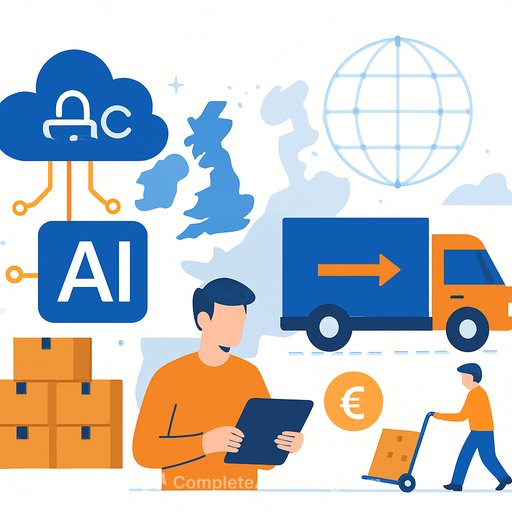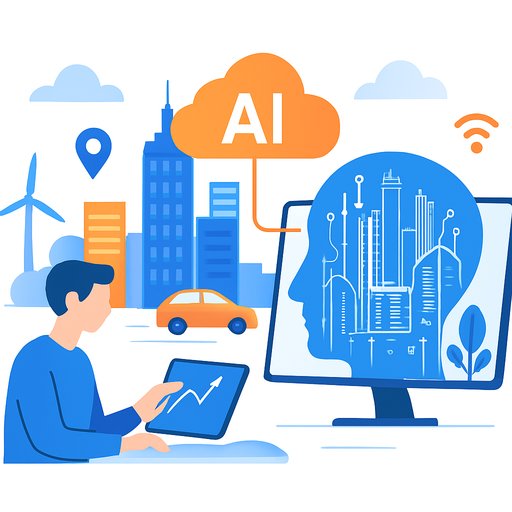English Preparation for the Labor Market in the Era of Artificial Intelligence: Managing AI-Based Tools Will Be as Important as Literacy
Artificial intelligence (AI) often sparks concern and debate. Yet, the key takeaway is clear: we should neither underestimate nor overestimate AI. In most cases, AI will assist and complement human work rather than replace it. The need to manage AI tools effectively will become as fundamental as literacy, driving a new set of essential skills for the 21st century—alongside digital literacy, a category B driver’s license, and proficiency in at least one foreign language, ideally English.
AI and Global Job Trends
According to the World Economic Forum’s “Future of Jobs 2025” report, labor markets are adjusting to AI’s growing presence. The initial shock from rapid digital transformation during the pandemic has eased, especially after tools like ChatGPT became publicly available in late 2022. By 2030, AI is expected to replace around 90 million jobs worldwide but will also create approximately 170 million new roles that don’t exist today.
AI’s Impact on the Serbian Labor Market
Serbia faces AI integration challenges shaped by its local economy and labor market. The Foundation for the Development of Economic Science (FREN) analyzed how AI might affect Serbian jobs. Their findings show that about 2.4% of employed people (approximately 70,000) could see their jobs fully automated in the near future. Another 13.5% (around 388,000) will experience significant changes in how they work due to AI support, but their roles will not disappear.
In total, roughly 17% of Serbia’s workforce will feel AI’s direct impact, either through job elimination or changed work processes. The remaining 80%+ are less vulnerable because their jobs require physical presence, manual skills, caregiving, or complex creativity and decision-making.
Based on global trends and local data, if 70,000 jobs are at risk of automation in Serbia by 2030, about 130,000 new jobs are likely to emerge. These new roles will come with different titles and skill requirements, highlighting the need for proactive workforce development.
Gender Disparities in AI Impact
FREN’s analysis indicates that women are more vulnerable to job loss due to AI because many work in sectors like administration, finance, trade, and services—fields with repetitive tasks prone to automation. This calls for targeted requalification and support programs to prevent widening gender gaps in the labor market.
Job Types Most Affected by AI
- Administrative roles: Up to 82% of tasks can be automated, especially routine office functions.
- Engineering and technical jobs: Around 27% of tasks may be automated, with AI assisting in simulations, design, and data analysis.
- Creative professions: AI can contribute to report writing, drafting, and generating visual or audio content, but human creativity remains essential.
New Opportunities Through AI
AI will also create new job categories in Serbia, such as AI modelers, user interface designers for AI systems, content creators, data curators, and specialists in AI ethics and governance. These roles reflect collaboration between humans and intelligent machines.
Serbian companies already anticipate increased demand for positions like data analysts and project managers by 2027. This trend aligns with findings from MIT economist David Autor, who noted that 60% of today’s jobs didn’t exist in 1940, demonstrating technology’s long-term role in creating new employment.
Taking Control of the Future
AI is not an enemy but a tool that can enhance productivity and job quality. The question isn’t which jobs AI will destroy, but what opportunities we can create alongside it.
Serbia’s size and flexibility present an advantage. The country can quickly adapt education systems, launch requalification programs, and build conditions that retain talent. This requires decisive action from governments, companies, and individuals alike.
While AI can handle routine tasks, human qualities like creativity, empathy, vision, and ethical judgment remain irreplaceable. Waiting passively risks obsolescence; proactive engagement offers a path to shaping a thriving new economy.
For managers and leaders, this means prioritizing AI literacy and skill development within teams and organizations. Understanding AI’s role and integrating AI tools thoughtfully will be key to staying competitive.
Explore practical training options to build AI skills and prepare your workforce at Complete AI Training.
Your membership also unlocks:






